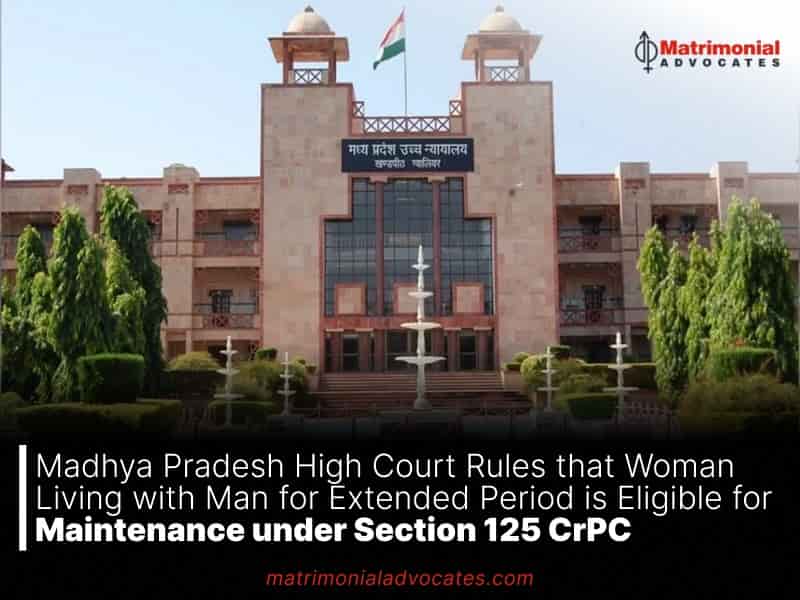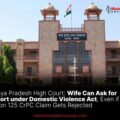
Madhya Pradesh High Court noted that Supreme Court has emphasised on the broad interpretation of the term “wife” under Section 125 of CrPC and the presumption of marriage in cases of long cohabitation.
The Madhya Pradesh High Court recently rendered a decision on a petition brought forth under Section 482 of the Criminal Procedure Code, 1973 (CrPC), challenging a maintenance order due to the absence of a formally recognized marriage. Presided over by Justice G.S. Ahluwalia, a single-judge bench upheld the maintenance order in favor of the respondent, highlighting the importance of preventing destitution and ensuring social justice as outlined in Section 125 of CrPC.
The case involved contesting orders issued by the Magistrate of Gram Nyayalaya Balaghat and the First Additional Sessions Judge, Balaghat, which mandated the petitioner to provide monthly maintenance to the respondent at the rate of Rs. 1,500 per month. The petitioner argued that there was no legal marriage between him and the respondent since their marriage ceremony didn’t conform to traditional rituals conducted in a temple, and furthermore, he alleged false accusations, including an FIR under Section 376 of IPC. The petitioner contended that the absence of a legally recognized marriage invalidated the maintenance order, insisting that the Trial Court failed to establish the legality of the marriage, thus casting doubt on the respondent’s entitlement to maintenance. However, the respondent countered by asserting that they lived together as a married couple for a significant duration, and the birth of their child further solidified their relationship, warranting her eligibility for maintenance under Section 125 of CrPC.
Upon review, the Court noted that the trial court did not expressly determine whether the respondent was legally wedded to the petitioner, but acknowledged that the respondent failed to substantiate the marriage rituals or provide evidence of a temple ceremony. Nevertheless, the trial court concluded that “since the applicant and respondent were living as husband and wife for a considerable period and the respondent has also given birth to a child, therefore respondent is entitled to maintenance.”
Referring to legal precedents such as Kamala v. M.R. Mohan Kumar, (2019) 11 SCC 491, the Court emphasized that strict proof of marriage is not required in proceedings under Section 125 of CrPC and maintenance cannot be denied solely on the grounds of the absence of a legal marriage if there is evidence of cohabitation and childbirth. The Court cited Chanmuniya v. Virendra Kumar Singh Kushwaha, (2011) 1 SCC 141, where it was held that maintenance cannot be refused when there is proof of living together as a married couple, underscoring a broad and inclusive interpretation of the term “wife” to serve the social objectives of Section 125 of CrPC.
Consequently, the Court ruled that since the petitioner and respondent lived together and had a child, the respondent is entitled to maintenance under Section 125 of CrPC. The Court dismissed the Section 482 application and upheld the lower courts’ orders directing the petitioner to pay maintenance to the respondent, finding no flaw in the award of maintenance given the circumstances of the case, despite the Trial Court’s failure to make a specific ruling on the legality of the marriage.





